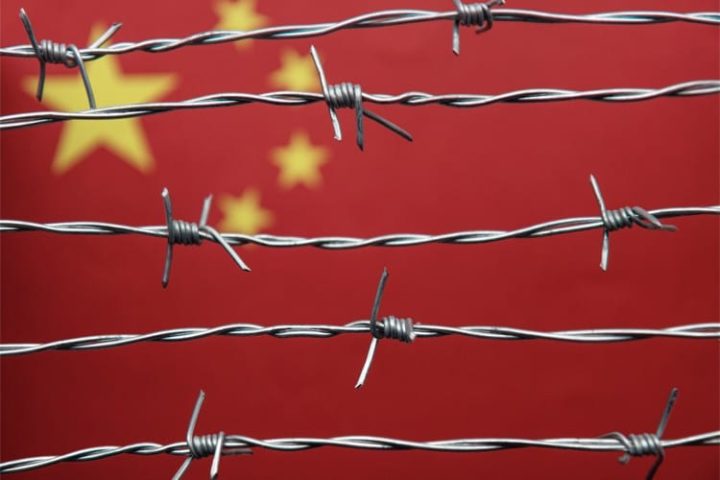
Based on an August 2022 report titled Drugged and Detained: China’s psychiatric prisons by human rights group Safeguard Defenders, government agents and police in China persist in detaining government critics in psychiatric facilities, notwithstanding “reforms.”
Domestically termed as ankang in Mandarin, after the system of police-operated psychiatric prisons introduced in the 1980s, most victims are detained in regular psychiatric wards nowadays. What this implies is that doctors and hospitals team up with the communist authorities to expose victims to medically-unnecessary involuntary hospitalizations as well as forced medication. For instance, doctors unlawfully do not conduct psychiatric evaluations prior to admission. Moreover, victims at these facilities are beaten, tied up, forced to undergo electroshock therapy, and kept incommunicado. To make matters worse, victims can be locked up for days, weeks, months or years, with some having been detained in facilities for more than 10 years.
“These legal reforms have absolutely not worked,” Safeguard Defenders declared in a statement when it unveiled its new report into being “mentally illed,” an online slang term used to mean coerced incarceration in a psychiatric facility, a method often used by the communist authorities to clamp down on dissidents, petitioners, and other regime critics.
The report, which relied on more than 140 secondary sources with most interviews done with victims and families from 2015 to 2021, elaborated that there are manifold reasons on why the Chinese Communist Party (CCP) detains its critics in such psychiatric facilities. One key reason is that such detainment silences these critics as detainees would be unable to petition, protest or be featured in the media. The next reason is deterrence whereby the horror of forced hospitalization would stop critics from petitioning or protesting after release. Besides, detaining critics in mental facilities with a false label of “mental illness” stigmatizes them as well as alienates them from others.
“Police and government agents continue to arbitrarily send petitioners and activists, sometimes repeatedly,” the report asserted, adding that one woman interviewed for the study had been sent 20 times.
Such detainments happen both at general medical facilities, and within the network of police-operated ankang hospitals allocated to house criminals and suspects with mental health conditions.
“Doctors and hospitals are either coerced by, or collude with, the authorities by allowing this abuse to take place,” Safeguard Defenders posited.
Although a new Mental Health Law prohibited the committal of psychiatric patients without a medical evaluation and an amended Criminal Procedure Law increased judicial oversight requirements where police send people to psychiatric care, not much has changed on the ground, based on the report.
“Once inside, victims may stay there for months, even years,” Safeguard Defenders said.
“Nine victims have been inside for more than 10 years. Others have been locked up again and again.”
“The hardest part of being held in the psychiatric hospital is there is no expiry date … you could be there for 20 years or 30 years.” activist Song Zaimin admitted.
Almost one third of the 99 victims interviewed said they had been detained in this way at least twice.
“Many patients were physically and mentally abused,” Safeguard Defenders said. “They were subjected to painful electroconvulsive therapy, often without anesthesia; tied to their beds where they were left for hours to lie humiliated in their own waste; and beaten and isolated.”
People detained for “mental illness” are also refused contact with family members or lawyers, even by phone call, the group added.
What is more, detainees’ problems do not cease once they are released, with detainees suffering “serious physical and psychological trauma” such as drastic weight loss, scarring, and muscle wastage from neglect and abuse.
“The forced medication has also left enduring mental scars including signs of dementia in even young victims, night terrors, tremors and suicidal thoughts,” Safeguard Defenders said.
The group urged the international community to “once again pay attention to this grave abuse of human rights,” and on the Chinese regime to halt the practice and close down ankang hospitals.
U.S.-based legal scholar Chen Guangcheng remarked that coerced psychiatric “treatment” is often used to crack down on dissidents, petitioners, and rights activists.
“The CCP has been using the claim that they are mentally ill on petitioners for a long time now,” Chen told Radio Free Asia (RFA). “If they can’t suppress them with interception and detention … they do this instead.”
“The police have the power to decide whether you are sick, and decide to send you to a psychiatric hospital, and even to decide the diagnosis they give you,” he said. “The diagnosis is tailored by the hospital to suit the needs of the CCP, so human rights defenders can be detained and persecuted at will.”
Chen asserted that the amendments to the law had made little impact on the ground.
“It doesn’t matter how well drafted a law is: if there are no checks and balances on its implementation, then it’s useless,” he said.
Echoing Chen’s views was rights lawyer Wang Yu, who said she had represented a client in the northeastern city of Harbin 10 years ago in a similar case.
“Some of these dissidents, petitioners, and human rights defenders haven’t broken the law at all, but have been declared mentally ill and held in a psychiatric hospital, with no due process or approval needed from the authorities,” Wang acknowledged.
“It’s a particularly egregious method,” she said.
Huang Yong, son of Sichuan-based rights activist Huang Dingbin, said similar mistreatment had been forced on him and on his father.
“My father was detained on Sept. 5, 2008 and held for 43 days in a psychiatric hospital,” Huang told RFA. “Basically, we were standing up for our rights and petitioning.”
“I was sent to [a psychiatric hospital] for nine days in 2013, in 2016 and in 2017,” he said. “Both my father and I were detained many times.”
“My father went to Chengdu to petition about a grievance in 2008, reporting a case to the [CCP’s] Central Commission for Discipline Inspection,” he said. “They locked him up in there. They now call it a healthcare service provider.”



